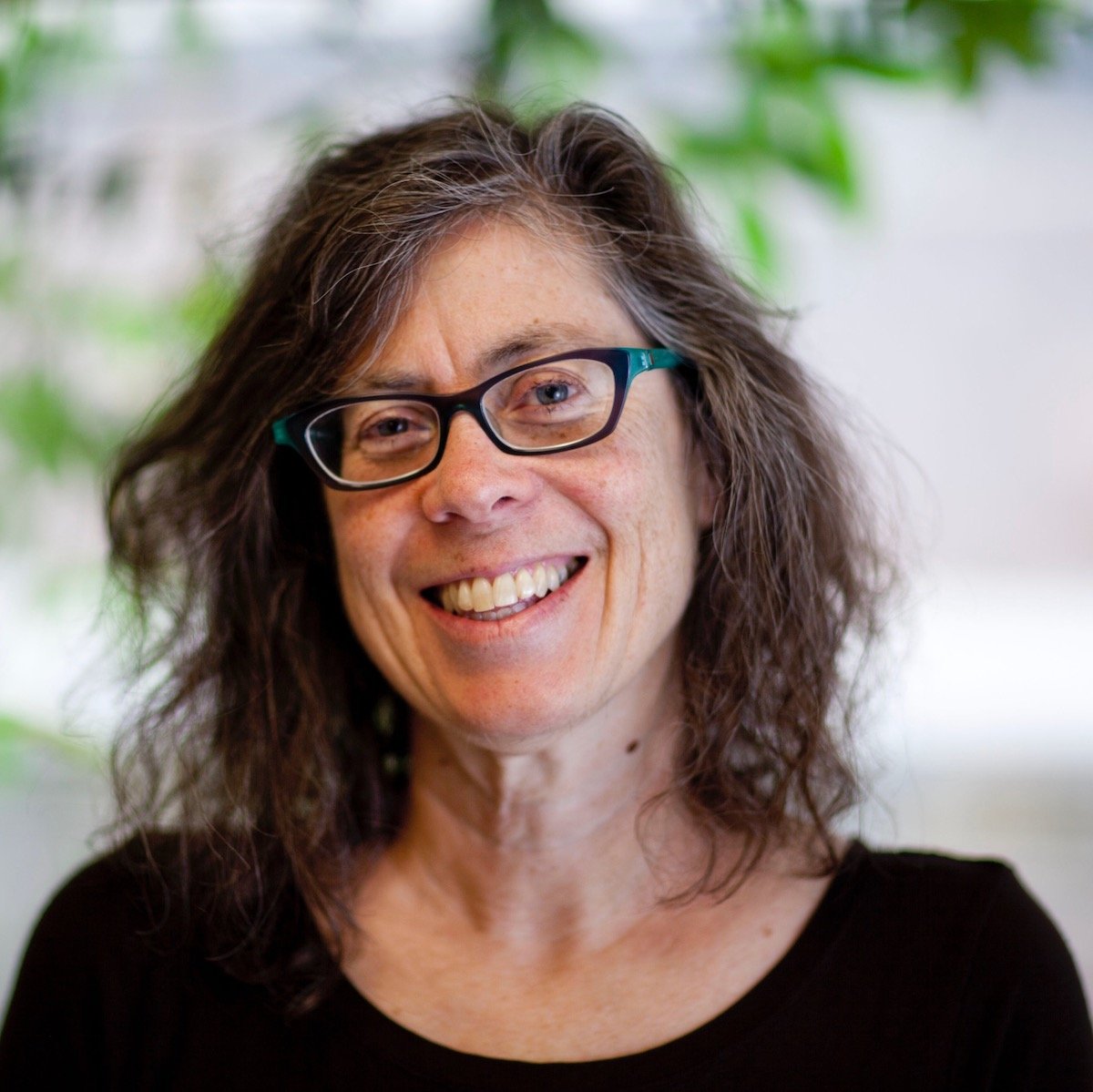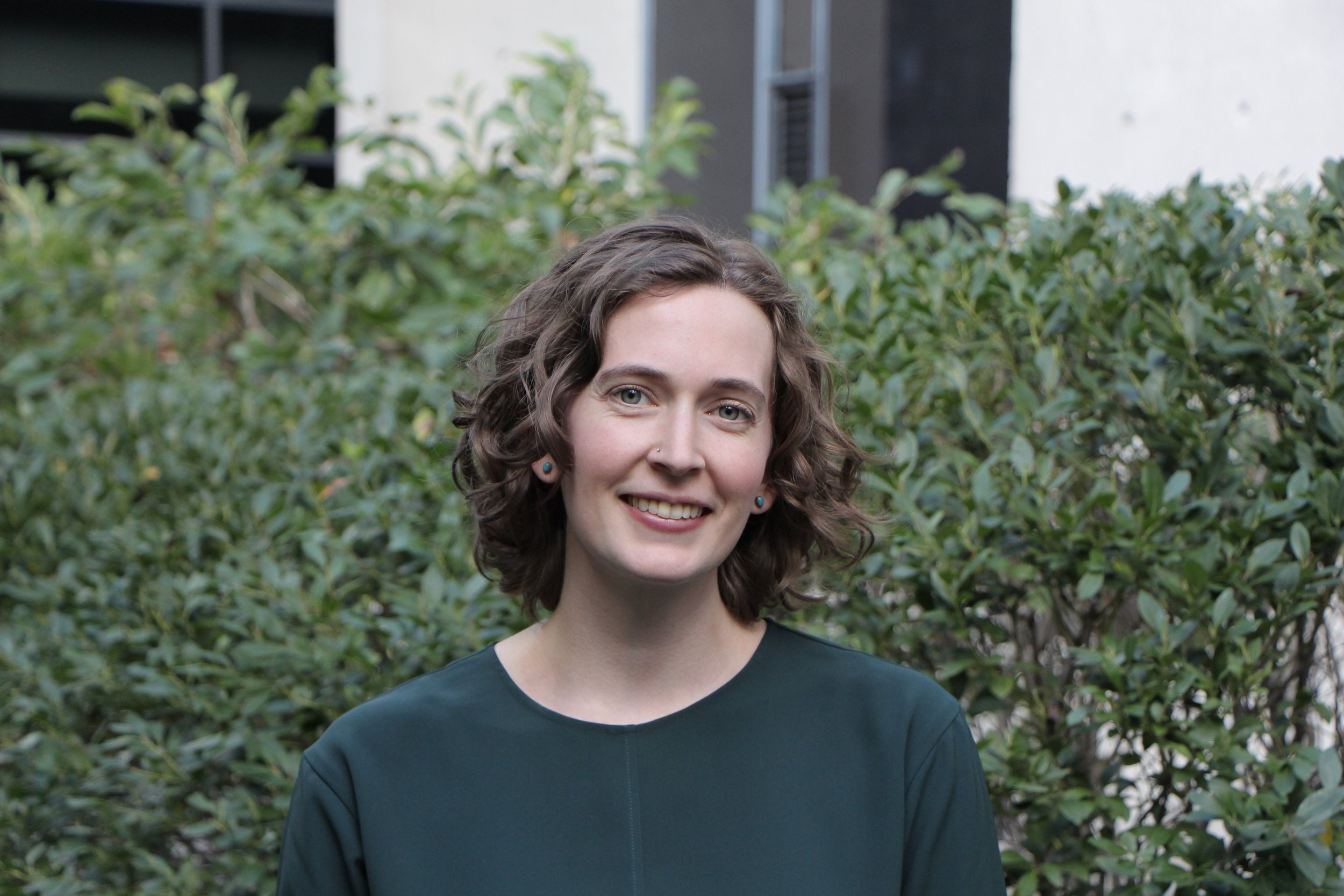Two women scientists honored for their Dissemination of Arabidopsis Knowledge
Arabidopsis is a model plant that has illuminated our understanding of plant and eukaryotic biological processes through research and education. For the first time in the Arabidopsis community, we are honoring these important endeavors by awarding “Dissemination of Arabidopsis Knowledge” awards to Alison Crowe and Molly Edwards for their exemplary ability to support learning using Arabidopsis. The two recipients will give invited presentations on the final day of the International Conference on Arabidopsis Research, July 19th, 2024 in San Diego.
Molly Edwards is the Owner & Producer of Science in Real Life, an education based media company that creates STEM-focused digital content for academic institutions, non-profit organizations, and industry. Dr. Edwards first YouTube video for her channel, DNA!, featured her extracting DNA from Arabidopsis plants. Her creative approach and media savvy were recognized by the NAASC through this inaugural award.
Alison Crowe is currently a Teaching Professor at the University of Washington. Dr. Crowe has leveraged plants, including Arabidopsis, to effectively promote inclusive learning environments for undergraduate students. Teaching the next generation of our workforce is a challenging enterprise, and it is critical to provide unique opportunities for learning. The North American Arabidopsis Steering Committee (NAASC) recognizes Dr. Crowe’s commendable efforts to promote STEM competency in the classroom.
"Dr. Crowe teaches Bio 400: Molecular Biology, a laboratory course where students learn molecular biology techniques. She … designed the course so that teams of students propose experiments and write up NSF types of proposals. The lab group then acts as a review panel and determines which projects to “fund”. The majority of [the students hope] to attend professional health care post-graduate work. However, Dr. Crowe selected Arabidopsis as the model organism [and while at first] students are perplexed.. over the course of the term they come to see the amazing findings this experimental organism provides. After proposals are accepted, Dr. Crowe oversees the experiments as they are implemented. She guides students through data collection and analysis. Each group writes up a mini-manuscript. On the final day .. each group presents their conference type poster to [the class]…These students have gained a deeper understanding and appreciation of the scientific method and the value of the model organism of Arabidopsis." -Letter Writer for Dr. Alison Crowe.
"Dr. Edwards has exhibited wonderful creativity in developing a unique science communication platform. She [developed] a YouTube-based science series called Science In Real Life (Science IRL https://www.youtube.com/channel/UCSarDm_DBa-OiD9M7iWLcpA]. Drawing on the fun and engaging style of series like Doodling in Math Class or Veritasium, Dr. Edwards demonstrates lab experiments and interviews scientists about their daily lives. She has assembled a team of collaborators with diverse technical expertise, writes all of the episodes, performs as the “on air” talent, and manages the final assembly and release of each episode Videos such as ‘Fruits vs Veggies’ and ‘Everything is Broccoli’ teach basic aspects of botany, while others cover cutting edge molecular approaches and seek to demystify (and de-stigmatize) the development of transgenic plants. Further, Dr. Edwards makes a concerted effort to highlight the work of diverse plant scientists, in terms of gender, race, ethnicity, identity and field of research. She has worked closely with many PIs, helping them extend the impact of their outreach, and has used her skills to support REU programs. She is at the forefront of a new generation of scientists who seek to engage the public using creative and cutting-edge tools." -Letter Writer for Dr. Molly Edwards.
"Dr. Crowe’s teaching has synergized with a highly impactful career in discipline-based biology education research (DBER). DBER is an emerging field where pedagogical practices are studied specifically in the context of teaching biology, with major funding support from NSF and other agencies. Dr. Crowe has been a leader among DBER-focused faculty members. This work has incorporated Arabidopsis education, for example in a 2014 study (DOI 10.1093/biosci/bit016) introducing a novel and effective experimental design module into her upper division lab course. Thus Dr. Crowe has used Arabidopsis as a launchpad for DBER research, showing the ability of Arabidopsis in an undergraduate curriculum to fuel broader educational goals. Dr. Crowe’s research now extends beyond the use of Arabidopsis as a teaching model. Her work focuses on active learning, pedagogy of experimental design, and framing of core concepts in biology within a departmental curriculum. She has led dozens of workshops and outreach activities at university venues, conferences, and for the broader public. In summary Dr. Crowe has been a leader in innovative teaching using Arabidopsis, and has used this experience to jumpstart the advancement of biology education research. Her Arabidopsis work has led to large indirect impacts on outreach and education." -Letter Writer for Dr. Alison Crowe.
"Dr. Edwards' work combines her lifelong passions for the performing arts and science. When Dr. Edwards graduated from college and started her own YouTube channel, Science In Real Life (IRL), her two pursuits were combined into one creative output. Science IRL dives into the daily lives, experimental procedures, and aspirations of real scientists, highlighting the diversity of people working in our communities. Dr. Edwards' channel is aimed at engaging the public in science, making our (at times) obscure world accessible to a broad audience. She covered her own life as a PhD student from beginning to end, even filming a video on the publication of her first, first-author paper, and her PhD thesis. These videos have immeasurable value, making the life of a PhD student tangible to a prospective undergrad who may have a hard time imaging what the PhD process entails. This is especially true in the wake of Covid, when many of our prospective students have missed out on years of in-person research opportunities. She continued to make educational content that was aimed at answering many of the public’s popular Botanical questions. She made an entire episode about Brassicaceae crop domestication that I show to my college-level Botany class (they love it!), and another video on the crazy world of fruit classifications (a topic that even the most experienced plant biologists can get lost in). After graduating from her PhD, Dr. Edwards entered the professional world of SciCom, making Science IRL her fulltime job. In her capacity as a professional communicator, She is fulfilling an essential role in the scientific community, she is helping the public and policy makers build their scientific literacy and enhance their appreciation for the government-funded work that we do. I believe her messages, which span from fundamental aspects of plant biology to applications in agriculture, are crucial for the continued growth of our community. -Letter Writer for Dr. Molly Edwards.
NAASC developed Arabidopsis Community awards in 2023 with inaugural awardees announced in 2024. The Dissemination of Arabidopsis Knowledge awards are given for demonstrated commitment to disseminating knowledge in the Arabidopsis community. The community submitted nominees that excelled in the 1+ areas.
Innovative Teaching for Arabidopsis & plant biology
Outreach Activities/Initiatives for Arabidopsis & plant biology
Communication for Arabidopsis & plant biology
Nominees were evaluated by a NAASC subcommittee based on (1) Nomination letter(s); (2) Nominee CV, (3) optional Nominee statement; and (4) Letters of support. In 2024, two awardees were selected, one in the early career (graduate student or postdoctoral scholar) category and one in the later career (faculty and other non-trainee positions) category.
Awardees are invited to give a talk at ICAR 2024-San Diego (15-19 July).


